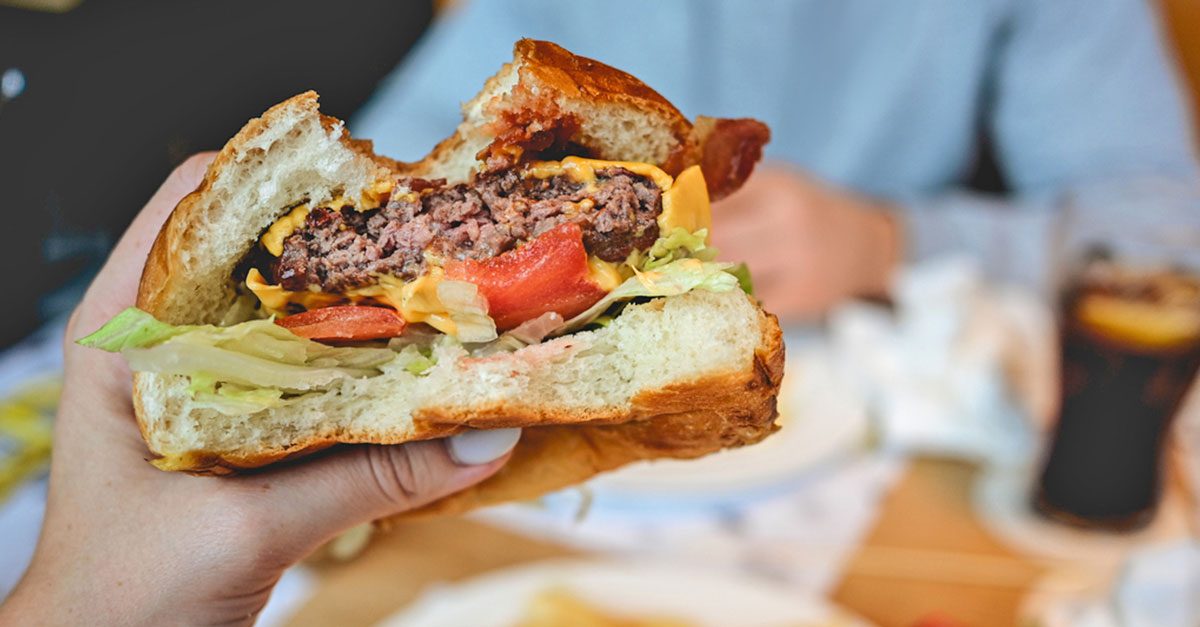Americans Continue to Eat Processed Meat Despite Serious Health Warnings
However, Americans are eating more chicken and less red meat than they used to, so it’s a step in the right direction.
;Resize,width=742;)
Processed meats are undeniably tasty, but despite increasing evidence on how bad processed foods are, the American public are still eating these foods at the same rate they ever did.
Data in a study published in the Journal of the Academy of Nutrition and Dietetics shows that between 1999 and 2016, the amount of processed meat consumed by American adults has remained unchanged.
However, Americans are eating more chicken and less red meat than they used to, so it’s a step in the right direction.
What is Processed Meat, and Why Is It So Bad?

Processed meat is any meat product that has been altered to extend shelf life or add more flavor. This can include deli meats, hot dogs, sausages, bacon, and ham.
The bad news? “The World Health Organization (WHO) declared processed red meat to be in the same cancer-causing category as cigarettes and plutonium, so it obviously carries some significant danger,” Dr. Andrew Freeman, Cardiologist, says.
It’s not really the meat itself that’s the problem, it’s the compounds associated with the processing, such as nitrites and nitrates. These components prevent bacteria growth and add a salty flavor to the meat.
“A large WHO study showed strong associations between nitrates and nitrites and cancers of the stomach and colon,” says Kristin Kirkpatrick, a registered dietician.
There is also more potential for the risk of hypertension, stroke, and heart attack, due to the high sodium content of processed meats.
Why Do We Eat It?

Because it tastes great, is the simple answer.
“When meats are cured, salted and spiced, it makes them taste good – although I would argue you can put those same spices on vegetables and make them taste good too,” says Freeman.
So, why aren’t more people aware of the risks of processed meats?
Dr. Fang Fang Zhang of the Friedman School of Nutrition Science and Policy, Tufts University, Boston, said in a press release: “While factors other than health (e.g. social, cultural and economic) can influence American’s food choices, the lack of widespread awareness of health risks associated with processed meat may have contributed to the lack of consumption change in the past 18 years.”
Freeman agrees with Zhang, saying that it is in the best interests of the major food producers to downplay the risks and carry on promoting their products. This is one of the reasons why processed meat is so pervasive in the U.S.
Freeman also points out the irony of processed foods being served in healthcare institutions, which may encourage people to think they’re harmless. He adds that although cigarettes have warning labels, there is no such caution on processed meats.
Ultimately, Freeman thinks that raising awareness among the population is the only way to make a difference, and that there needs to be more of an effort made to do it.
How Much Processed Meat is OK?

Many of us would be unhappy at completely ditching processed meat, but you can have a healthy diet and eat processed meat as an occasional treat.
Kirkpatrick says that eating processed meat once a day is “way too much.” A study in the BMJ showed that those who ate processed meats less than 6 times per month or none at all, had better outcomes. Kirkpatrick tells her patients “to look at red processed meat the same way they do dessert – a few times a month as a treat.”
Fish is a good source of protein, and lots of fish contain omega-3 fatty acids, which can benefit health. Wild, line-caught salmon, wild trout, and sardines are the best choices.
While we can all take responsibility for changing our own diets, changing things on a bigger, societal level is a much larger challenge, and Zhang says that stores and fast food restaurants may be prioritized in future as “primary sites of intervention for reducing processed meat consumption among U.S. adults.”
;Resize,width=767;)

;Resize,width=712;)
;Resize,width=712;)
